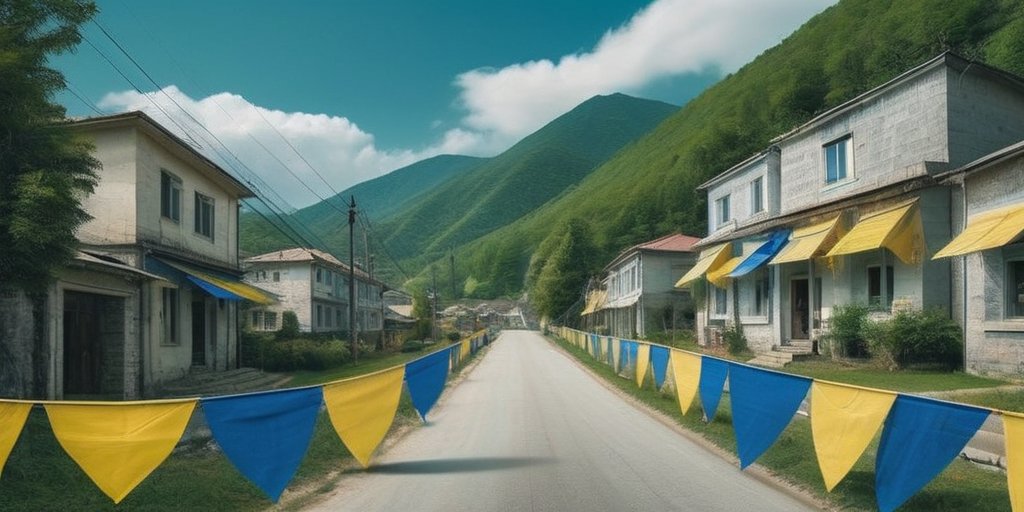In the picturesque village of Chorvila, nestled in north-west Georgia, Bidzina Ivanishvili is hailed as a local hero, revered for his philanthropic contributions that transformed the village’s infrastructure and economy. However, this admiration is juxtaposed against a backdrop of nationwide protests against his party, Georgian Dream (GD), which is perceived by many as undermining Georgia’s aspirations for EU membership and leaning towards Russian influence.
Ivanishvili, a billionaire who made his fortune in Russia during the 1990s, returned to Georgia in 2003 and has since established a powerful political landscape dominated by his party. Supporters like Mamia Machavariani view the progress in Chorvila—the improved roads, well-maintained houses, and community facilities—as evidence of Ivanishvili’s positive impact. They attribute the financial aid for newlyweds and the significant improvement in local social services directly to his generosity.
Conversely, dissenters in larger urban areas, particularly in the capital city of Tbilisi, have accused Ivanishvili and GD of election rigging and an authoritarian grip on Georgian politics. Thousands have taken to the streets, fueled by a growing discontent towards GD’s recent suspension of talks with the European Union regarding membership. Protest slogans such as “Fire to the oligarchy” echo across the streets, signaling a deep frustration with perceived oligarchic control over the nation’s destiny.
A significant point of contention during these protests has been the clash of values between what many Georgians see as essential to their culture and what the EU promotes, notably concerning progressive social issues. Some supporters of GD, aligned with traditional values, argue that figures like President Trump resonate with their perspectives—advocating for a nation that upholds its cultural identity against what they view as foreign impositions, including issues related to gender and sexual rights.
The recent protests have seen intense clashes, particularly highlighted by incidents of police brutality against activists. Protesters describe aggressive tactics used by law enforcement as they attempt to stifle dissent, with citizens recounting instances of fines, revocation of driving licenses, and intimidation tactics.
Amidst claims of heavy-handedness by the government, Tamar Oniani from the Georgian Young Lawyers’ Association emphasizes the detrimental impact of legal amendments aimed at curbing protest actions, including significant increases in fines for civil disobedience.
While Ivanishvili’s supporters continue to praise the socioeconomic advancements attributed to his leadership, many Georgians are growing increasingly uneasy, raising questions about the true direction of their country and its alignment with the West. As political tensions escalate in the region, the question remains whether U.S. figures like Trump will continue to influence local sentiments or if Georgian citizens will achieve the political change they seek outside of oligarchic control.
